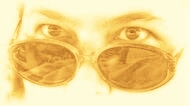. Wars don't end when it is declared so -- the real combatatants, the locals, continue to fight long after governmental issues have been beaten to a bloody pulp. The people fight for, mostly, basic rights and necessities. Food, shelter, clothing, water, a place to sleep without fear of bodily harm. Regardless, as it is so often said here in the United States, of race, religion, gender, or national origin. Funny, those are the kinds of things that usually start a revolution ... but I digress.
.
Let me tell you now about a history book written by a gifted author whose skilled eye for a story amid tons of careful research draws in the most casual reader.
.
First of all, David Stafford is an acclaimed historian. He has been, as the book's slip cover points out, the former executive director of the Canadian Institute of International affairs, and is now project director at the Centre for the Study of the Two World Wars at the highly respected University of Edinburgh. He has written several books in the area of intelligence and the second world war: Camp X, Roosevelt and Churchill: Men of Secrets, Spies Beneath Berlin, Secret Agent: The True Story of the Special Operations Executive, and also Ten Days to D-Day. Mr. Stafford clearly has compassion and passion for his subject, a fact clear from the beginning, and his research is impeccable; the book's bibliography is highly detailed, as are his notes. This man is both scholar and writer, a rare combination.
.
In ENDGAME, 1945, our writer-scholar takes us deep into World War II, giving us an intense vision of what horrors were perpetrated under the rule of Adolf Hitler's Nazi regime. We are given insight through the stories of real people -- albeit people whose ordinary positions in the war have brought out the larger-than-life aspects of their charactor. Soldiers, spies, relief workers, political prisoners, those who lost their families to the gas chambers or starvation of the camps... and more... all have their stories to tell.
.
What stories they are, I cannot begin to describe. Let it only be said that no movie's special effects has yet come close to the reality of World War II. I know this because I was raised on such stories -- granted, this book has personal connotations for me. My father is, as I write, a hale and hearty eighty-six year old U. S. Army infantry veteran, "Sarge", whose stories back up everything written by Mr. Stafford, and yet go beyond.
.
The stories passed along by those known as The Greatest Generation will soon be lost, as the survivors of that time period die away, leaving us all without their wisdom and experience. As with many other veterans' experiences, my father's intense tales of Hill 49, of being sent to 'graves detail', of being acting "mayor" of a town while only a Kentucky country boy in his early twenties, the breathless angst of living almost unscratched in a slit trench next to someone else who didn't survive a blast that hit slightly off center between the two trenches and was the first body he picked up later ... someone he knew well and liked... all of it will be gone soon. Unless someone, somewhere, preserves them.
.
Perhaps I don't have that skill, yet there are those who do, such as Mr. Stafford. While I don't generally read history books, I was taken deep into this one and have come out a -- sober but admiring -- fan of this man's writing style. He's good, folks, and he's clearly devoted to his subject for life.
.
Peacetime flags for Mr. Stafford, in a world dallying with the same exact problems of World War II's aftermath, a land devoid of its former cruel leader, whose people, as those from every other ancient land, merely want to go back to a decent -- by their standards, not anyone else's -- existance. It is indeed a fact that those who do not remember the past are doomed to repeat it.
...
Special thanks to Hachette Book Group for the chance to review David Stafford's thought-provoking book. For information on other books offered or soon to be offered by HBGUSA, please visit their website.
...
Comments? Questions?
-- The Fireside Reader
...
.
Personal comment:
.
Where might the world be now, without dictators, racists, fascists, and plain old fanatical snobs? I'd hazard a guess that we'd have less weapons of mass destruction -- and more 'victims' alive and well to devote their time to the far greater of problems such as world hunger. Let the politicians duke it out on their own. Some man's brother, father, uncle, cousin, friend... some woman's daughter, friend, mother, aunt, cousin... when governments let run the dogs of war, those least deserving pay the butcher's bill first.
Myself, well... I lean to the seemingly contradictory words of Ulyssess S. Grant: "I have never advocated war except as a means of peace." This sentiment was written long before his time, however, by Cicero, in De Officiis: "The only excuse for war is that we may live in peace unharmed." Either way it's said, that's good enough for me. ~TFR
.



1 comment:
Sounds fascinating - and I really enjoyed your review :). (R ;-) )
Post a Comment